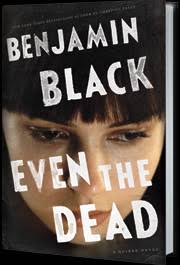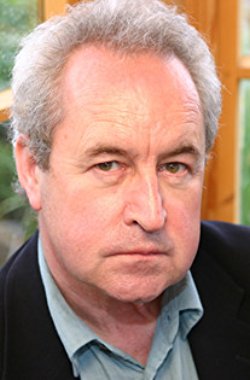Dublin in the early 1950s is a world unto itself turned inward. Dr Quirke is a pathologist who observes much and suspects more. When a road accident victim’s corpse is examined he finds a contusion on the temple that is inconsistent with the car crash. Musing follows. In time, he mentions his doubts to the Inspector Hackett of the Serious Crimes Squad who noses around and finds unpleasant emanations. This is the seventh entry in a series and it is tired, but perhaps complacent is the right word: ‘If I write it, the reviewers will praise it.’ He did and they did.

Though the spring weather is benign, the choking conformity of Maxima Catholic Dublin is inescapable. All in Dublin is more Catholic than the Pope. It is certainly more Catholic than the Rome of the time. The Bishop’s Palace is the seat of power in Dublin, not Tithe an Rialtais, the large Edwardian building enclosing a quadrangle on Merrion Street wherein dwells the Taoiseach by which we once walked.
There is only one escape permitted from this suffocating pall and that is alcohol. Frequently in Quirke stories, and no doubt in 1950s Dublin life, the pregnancy of unmarried women is paramount. Moreover, every thread, however long and ravelled, eventually traces back to the Catholic Church and its baleful tentacles.
These books are very well written and the picture of Irish life seen through Quirke’s eyes is to travel back in time. Yet in these books there is precious little detection, no police procedure despite Hackett’s occasional plod, and no mystery. Much is also predictable, as Quirke’s sexual conquests. As soon as a women is introduced into the story, we know she will soon succumb to his charms.
Instead we have Quirke, holder of a prestigious and authoritative position, a highly trained and accomplished medical doctor, a widower, father of a bright grown daughter, comfortable of income, handsome and attractive to women, who spends nearly every minute feeling sorry for himself in a self-imposed melancholia where he wallows for pages and pages, smoking cigarette after cigarette, drinking drink after drink. Evidently his pathologies did not involve lungs or livers.
Instead of detection we have meals, drinks, cigarettes, meals, drinks, cigarettes, meals….. On it goes. Yes, the prose is polished and the observations of life’s details exact, but repetitive and inert. There seems to be neither point nor purpose to the the prose. Some of the characterisations are profound, like Quirke’s terminally ill brother but have no place in the plot.

There is no doubt John Banville, Benjamin Black’s after ego, can write. The portrait of the victim’s father is striking and sympathetic. The contrast, however, is the government official whom Hackett interviews, who is little more than a cartoon character, flustered by the simplest question. Banville has respect for the father and none for government officials and it shows as he makes up the reader’s mind. Take that all those who work for the government, including those who uphold the intellectual property and copyright laws that secure Banville’s income. all those who regulate and maintain the internet services that provide a platform for his novels, all those who police crime and who had to deal with IRA on the border for a generation, all those who make difficult decisions about troop deployments on UN Peace Keeping missions, these are all clots!
I also found the reference to the Spanish Civil War confusing. The International Brigades were certainly there but the specifics mentioned in the story did not compute.
Skip to content
